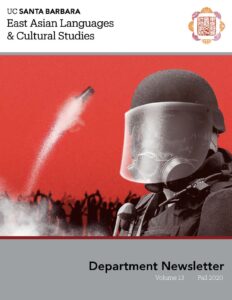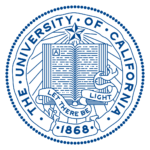East Asian Languages & Cultural Studies is a department committed to transregional, interdisciplinary, and collaborative approaches to the study of East Asian cultures in the world, past and present. Our primary areas of focus are the Chinese, Japanese, and Korean languages, and the disciplines of literary studies, film, anthropology, religion, history, sociology, and linguistics.
In our research and teaching, we address a wide range of subjects from a number of different perspectives, including religious traditions (Buddhism, Confucianism, Shintoism, and Daoism) and schools of thought that have, for centuries, shaped visions of the world and everyday lives in East Asia and beyond. Collectively we aim to examine and describe artistic, historical, literary, linguistic, philosophical, anthropological, and sociological analyses of the forces of indigenous, national, regional, and global cultures albeit centered on East Asia. Our signature characteristic is the blend of humanities with the social sciences and modern with premodern. Our core mission is to open our students’ minds to East Asia. We believe that doing so in critical and substantive ways will equip them well for the increasingly globalizing and more “Asian” world we inhabit.
EALCS offers three undergraduate majors, Asian Studies, Chinese Studies and Japanese Studies. Our 5-year B.A./M.A. program attracts our most accomplished undergraduate majors and fast-tracks them to an M.A. degree. Our M.A. program provides for an Academic Track (Track I) and a Professional Track (Track II). The Ph.D. program is characterized by five different areas of strengths.
The Chinese and Japanese Studies undergraduate majors provide extensive language training paired with interdisciplinary coursework in literature, theater, anthropology, sociology, as well as history and religion. The major in Chinese begins with Modern Standard Mandarin and moves on to Classical Chinese, the shared language of East Asian elites from early times into the twentieth century. The major in Japanese builds on the study of the standard language of the Tokyo area and encourages an acquaintance with Classical Japanese and Classical Chinese. Beyond language training, both of these majors focus on the study of cultures within a broad social and historical context. The Chinese and Japanese majors provide preparation for further academic work in East Asian Studies or for careers in a wide variety of professions. Recent majors have added professional degrees (in law, international management, journalism, or diplomacy, among others) to their undergraduate training in Chinese or Japanese.
The Asian Studies major is an interdepartmental program administered by the Department of East Asian Languages & Cultural Studies. The disciplines that contribute most to Asian Studies at UCSB are anthropology, art history, comparative literature, history, religious studies, and global studies. In conjunction with Asian Studies courses, UCSB offers language courses in Chinese (Mandarin and Classical), Japanese (modern and classical), Korean, and Tibetan.
The interdisciplinary study of an Asian culture, together with language training, provides an important basis for graduate work at the M.A. or Ph.D. level. In addition, the Asian Studies major provides specialized knowledge for students who anticipate a career in business, law, journalism, government, or museum work, typically after additional training in a professional school. Students with a bachelor’s degree in Asian Studies who are interested in pursuing a California Teaching Credential are advised to contact the credential advisor in The Gevirtz School of Education.
HISTORY OF THE DEPARTMENT
Prior to the formation of the original East Asian Department, the Chinese Program started in 1964 with the appointment of Chauncey S. Goodrich who was joined by Kenneth H. Pai in 1965. The Japanese Program started with Robert L. Backus in 1966. The Department of East Asian Languages & Cultural Studies was established as an independent department in 1994 with the feature, still unique at the time, to go beyond standard emphases on languages and literatures and in addition introduce cultural analyses as its signature approach, core identity, and intellectual mission. This framework greatly facilitated cross-fertilization and interdisciplinary thinking in vastly more immediate and integral ways than had been possible in previous traditional academic settings.
The department has considerably matured since its establishment, and in 2007-08 a Ph.D. program was added to our already vibrant B.A. and M.A. programs. Emeriti professors include Kenneth H. Pai, Tomiko Narahara (Japanese linguistics), Allan G. Grapard (Japanese religions, Shinto-Buddhist interactions), Haruko Iwasaki (popular culture in early modern Japan), Bill Powell (Chinese religions), Ronald Egan (Song literature and aesthetics), John Nathan (Japanese film and modern literature).


